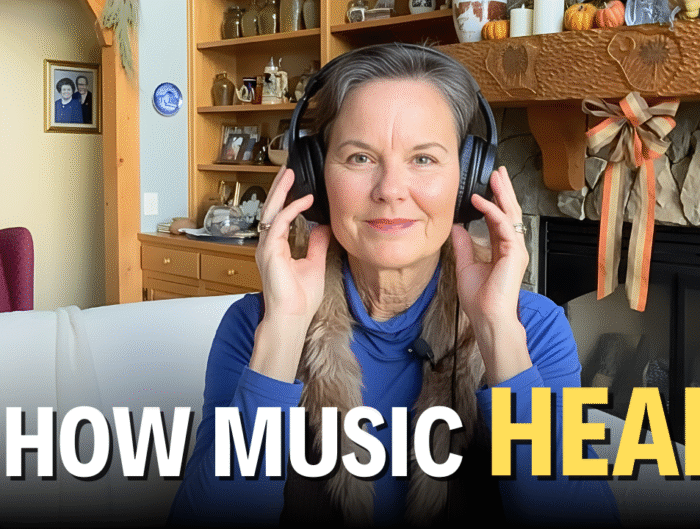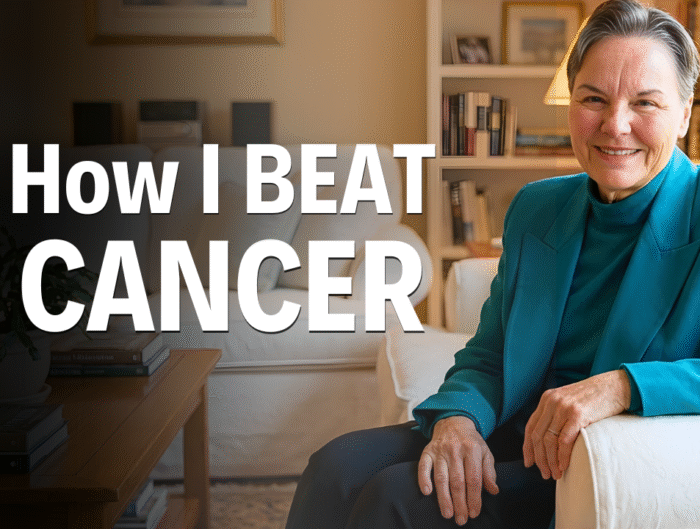Many situations such as the loss of a loved one, a divorce, the loss of a job, and other difficult situations can lead us to feel sad, lonely, fatigued, and hopeless. It’s normal to feel sad at times, but when these feelings persist and become more severe, the diagnosis is depression. This psychiatric disorder affects 1 in 10 adults in any given year in our country and 300 million people worldwide. This brain disorder is often treated successfully with therapy and medication. But some people prefer natural methods to boost their spirit. So let’s look at eight natural ways to fight depression, and these same eight ways can be used even if you use medication and therapy.
- Exercise daily. According to Harvard Health, there is strong evidence that regular exercise is one of the best antidepressants and can prevent mild depression from becoming more severe. Exercise combats depression by enhancing endorphins which are natural chemicals that create a sense of euphoria. In a 2018 meta-analysis study, it was found that people diagnosed with severe depression who engaged in 45 minutes of moderate aerobic exercise three times a week for two months had a greater antidepressant effect as compared to those with minimal exercise.
I’ve always been known as a person who doesn’t get depressed easily. No matter what happens, I tend to be able to keep my spirits up. But when many issues piled up on me such as a difficult move while serving as a caregiver for my dad with Alzheimer’s disease, that’s when the “Unsinkable Ginny Brant” began to struggle with depression. I was determined to fight this depression naturally, but my doctor gave me a prescription just in case. That’s when I began walking every day with my husband after work. I decided to try exercise first and it made a difference—so much that I never had to take the prescription. But keep in mind that some people may need to exercise and take the prescription. You can do both.
- Eat a nutrient-rich, whole foods diet. According to a NIH study, the highest scoring nutrients related to the prevention and treatment of depression are: folate, iron, omega-3 fatty acids, magnesium, potassium, selenium, thiamine, vitamin A, vitamin B6, vitamin B12, vitamin C, and zinc. The highest-scoring foods were leafy greens, lettuces, peppers, and cruciferous vegetables. The highest-scoring animal foods were seafood and organ meats.
There are also foods not to eat. According to Dr. Darshan Mehta of Massachusetts General Hospital, too much sugar can trigger extreme emotional highs followed by extreme lows which only makes your symptoms worse. In a 2017 study, it was found that men with high sugar intakes have an increased likelihood of common mental disorders such as anxiety and depression after five years compared to those with low intakes. If you’ve ever heard the term “sugar high”, realize that what goes up can eventually go down and make you feel worse. This goes for junk food, too. And it’s usually the first thing we reach for when struggling with depression. Alcohol is best used in moderation or frankly, not at all. Heavy drinking makes your brain less active and antidepressant medications less effective. So sticking to a Mediterranean diet consisting of lots of fruits and vegetables, nuts and seeds, beans and lentils, lean meats, and seafood is the best-proven diet for those battling depression.
- Hydrate properly. Adequate water intake is key to many body functions, but it can also affect your mood. Hydration is also associated with several mental functions including depression, anxiety, memory, and attention. In a study in the World Journal of Psychiatry, it was found that women who drank less than two glasses of water daily were at higher risk for depression and those who drank 5 or more glasses had a lower risk of depression.
Another study in 2012 revealed that a 1.5% loss in water volume in your body can significantly affect your ability to think, your energy levels, and mood. Dehydration obstructs your brain’s serotonin or happy chemical production. Dehydration itself causes stress in the body, and stress is the most well-known contributing factor to depression. To have enough serotonin in your brain to feel good, we must be properly hydrated. Afterall, our brain is 75% water. So drink up!
- Make sleep a priority. According to John Hopkins Medicine, people with insomnia have a tenfold higher risk of developing depression than those who get 7-9 hours of sleep. And depression can cause sleep problems. Never forget that your body heals and restores itself when we engage in deep sleep—and that includes healing from depression, stress, and anxiety, So get your body back into that circadian rhythm by making sleep a priority and part of your protocol for beating depression.
- Practice daily gratitude. Gratitude has been shown to have a positive effect on people diagnosed with depression. According to research, the practice of writing your blessings and what you are thankful for increases activity in the medial prefrontal cortex. This is the area of the brain associated with depression. So get out that paper and pencil and make it a habit to write your blessings down each day. It’s for your good.
- Connect socially with others. Social connection is key to fighting depression because social isolation can make symptoms more severe and longer-lasting. Sometimes you may not feel like being with others, yet at times, it may be the best thing for you to do. Joining a team sport helps with social connections and also boosts your mood through exercise.
- Use your faith to manage your feelings. King David and many of the prophets experienced times of depression. Reading inspirational passages from the Bible especially in the Psalms can lift your depression. Prayer also helps to calm the brain and lift your spirit. Music that takes the message of the Bible and ministers it to your heart is one of my best ways to lift my spirit. After caring for my father with Alzheimer’s disease for the weekend, I’d put in one of my favorite Christian CDs and sing all the way home.
- Consider supplementation. Magnesium is a nutrient previously mentioned that is proven to boost serotonin levels. When stress becomes chronic, it increases inflammation, contributes to poor digestion and absorption of nutrients, and depletes vitamins and minerals including B vitamins. If you are low in B6, B12, and B7, this depletion can be a symptom of depression. So check with your doctor about taking a magnesium and/or B vitamin supplement.
If you feel that you are slipping into depression, try implementing these suggestions as soon as symptoms present. If that does not work, seek help from a professional. For some people with mild symptoms, these natural remedies may do the trick as it did for me. But some people may need therapy to deal with issues in the past or present and medication to boost serotonin levels in addition to these lifestyle changes. Keep in mind that some people have a chemical imbalance that must be remedied with medication. Whatever your situation, these eight natural ways can support what your doctor and therapist are doing.
What natural remedies do you use when feeling depressed?
View this message on YouTube:
Eight Natural Ways to Fight Depression
For Your Health,
Ginny
 Ginny Dent Brant is a speaker and writer who grew up in the halls of power in Washington, DC. She has battled cancer, ministered around the world, and served on the front lines of American culture as a counselor, educator, wellness advocate, and adjunct professor. Brant’s award-winning book, Finding True Freedom: From the White House to the World, was endorsed by Chuck Colson and featured in many TV and media interviews. Unleash Your God-Given Healing: Eight Steps to Prevent and Survive Cancer was released in May 2020 after her journey with cancer and was recently awarded the First Place Golden Scrolls Award for Memoirs, a finalist in Serious Writers Book of the Decade, and Second Place in both Selah Awards for Memoirs and Director’s Choice Award for Nonfiction at the Blue Ridge Mountain Christian Writer’s Conference. It recently received the Christian Authors Network’s (CAN) Gold Award for Excellence in Marketing for reaching 62.5 million people with a message of cancer prevention and survival. It was written with commentary from an oncologist and was featured on CBN’s Healthy Living Show, Atlanta Live, and CTN’s Homekeepers along with over 75 media outlets. Learn more and cancer and wellness prevention blog and book information at www.ginnybrant.com. Ginny is on YouTube
Ginny Dent Brant is a speaker and writer who grew up in the halls of power in Washington, DC. She has battled cancer, ministered around the world, and served on the front lines of American culture as a counselor, educator, wellness advocate, and adjunct professor. Brant’s award-winning book, Finding True Freedom: From the White House to the World, was endorsed by Chuck Colson and featured in many TV and media interviews. Unleash Your God-Given Healing: Eight Steps to Prevent and Survive Cancer was released in May 2020 after her journey with cancer and was recently awarded the First Place Golden Scrolls Award for Memoirs, a finalist in Serious Writers Book of the Decade, and Second Place in both Selah Awards for Memoirs and Director’s Choice Award for Nonfiction at the Blue Ridge Mountain Christian Writer’s Conference. It recently received the Christian Authors Network’s (CAN) Gold Award for Excellence in Marketing for reaching 62.5 million people with a message of cancer prevention and survival. It was written with commentary from an oncologist and was featured on CBN’s Healthy Living Show, Atlanta Live, and CTN’s Homekeepers along with over 75 media outlets. Learn more and cancer and wellness prevention blog and book information at www.ginnybrant.com. Ginny is on YouTube
Link to buy book at Unleash Your God-given Healing
Click to sign up to take Conquering Cancer Course
Ginny is a cancer coach. Make an appointment to meet with her:




